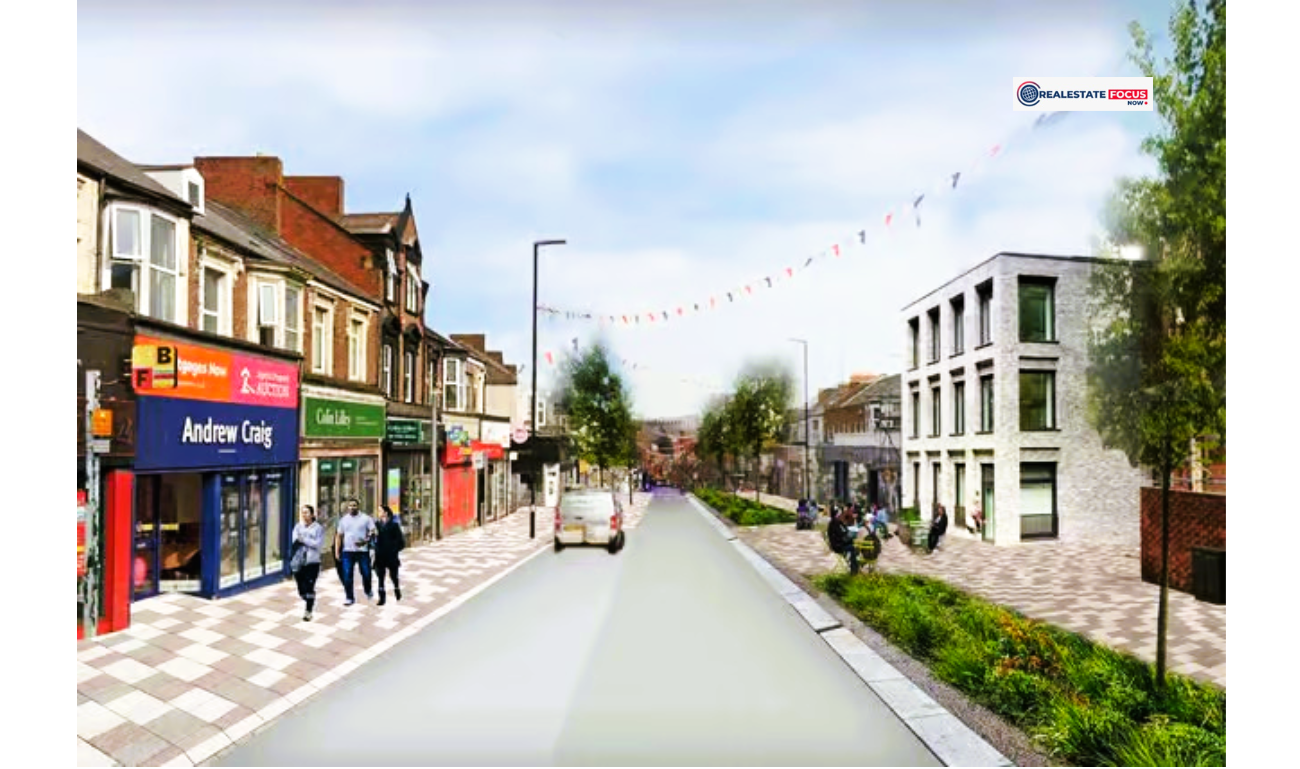

The Future of Real Estate Projects in Limassol: Exploring Trends Beyond the Luxury Boom
Limassol, Cyprus, has become one of the most sought-after destinations for luxury real estate in recent years. The city has seen a surge in high-end developments, with wealthy buyers drawn to its prime location along the Mediterranean coast and its growing reputation as a business hub.
As the luxury boom continues to shape the market, questions arise about what comes next for Limassol’s real estate landscape. While the city remains a hotspot for premium property, it is important to examine the future of real estate in Limassol beyond the current focus on luxury.
Several new trends are expected to influence the market, including a shift toward more sustainable and diverse projects that cater to a wider range of buyers. The rise of luxury real estate in Limassol has been driven by international investors, particularly those from Europe, the Middle East, and Russia.
High-end residential complexes, luxury hotels, and commercial developments have transformed the city’s skyline. Limassol has become home to numerous luxury apartment complexes that offer modern amenities, spectacular views, and top-tier facilities. This growth has been fueled by a combination of factors, including favorable tax policies, an improving economy, and the city’s reputation as a hub for international business.
As a result, Limassol has seen an influx of foreign investors seeking to capitalize on the city’s growing potential. As the luxury real estate market matures, the focus in Limassol is beginning to shift toward diversification. Developers are increasingly looking to cater to a broader demographic, including middle-income buyers, young professionals, and families.
These groups are seeking properties that offer more affordable pricing, while still maintaining high standards of quality and design. This change in focus is being driven by the desire to create a more inclusive real estate market that can support the growing population and diverse needs of the city.
New residential projects are emerging that blend contemporary design with sustainability, offering energy-efficient homes that minimize environmental impact while still providing the comfort and style that Limassol has become known for. Sustainability is expected to play a major role in the future of real estate development in Limassol.
As the global focus on climate change intensifies, buyers and developers alike are increasingly prioritizing eco-friendly buildings. Limassol’s real estate projects will likely see an increased integration of green technologies, such as solar panels, energy-efficient insulation, and rainwater harvesting systems.
These sustainable features will not only reduce the environmental footprint of new buildings but also appeal to buyers who are conscious of their impact on the planet. This shift toward sustainability reflects a broader trend in global real estate markets, where buyers are willing to pay a premium for homes that are energy-efficient and environmentally responsible.
The growing demand for green buildings in Limassol is expected to shape the direction of the market in the coming years. In addition to sustainability, the future of real estate in Limassol will likely involve the development of mixed-use projects. These projects combine residential, commercial, and recreational spaces in one location, providing residents with easy access to work, leisure, and essential services.
Mixed-use developments are gaining popularity in cities around the world due to their ability to create vibrant, walkable communities that offer a high quality of life. Limassol, with its coastal location and growing urban infrastructure, is well-positioned to embrace this trend. The integration of public spaces, green parks, and cultural amenities will make these mixed-use projects highly attractive to a wide range of buyers.
By creating communities that blend living, working, and leisure spaces, these projects can help Limassol evolve into a more dynamic and sustainable city. As Limassol’s real estate market continues to evolve, there is also growing interest in the development of properties that cater to the needs of the aging population.
Cyprus, like many countries, is experiencing an aging demographic, with more retirees seeking to settle in the country for its pleasant climate and relaxed lifestyle. Developers are responding by creating age-friendly communities that offer senior living solutions. These communities will be designed with accessibility and convenience in mind, featuring amenities such as healthcare services, recreational spaces, and social activities tailored to older residents.
The demand for such projects is expected to increase in the coming years, as more retirees look for comfortable, safe environments to spend their later years. Technology is also set to play a key role in the future of real estate in Limassol. The city’s real estate market is expected to embrace innovations in smart home technology, which will allow residents to control various aspects of their homes remotely, such as lighting, temperature, and security.
Smart homes are becoming increasingly popular in luxury real estate markets around the world, and Limassol is no exception. In addition to smart home features, the integration of technology in construction processes is also expected to streamline development and reduce costs. From advanced construction materials to automated building systems, technology will make the development of sustainable and efficient real estate projects in Limassol more feasible.
The future of Limassol’s real estate market will also be influenced by broader economic and geopolitical factors. As a major Mediterranean business hub, the city is affected by shifts in global trade, investment trends, and political dynamics. Any changes in the global economy, such as a shift toward more localized trade or changes in foreign investment patterns, could have significant implications for Limassol’s real estate market.
Developers and investors will need to remain flexible and adapt to these changes, while still maintaining the quality and sustainability of their projects. The ongoing development of Limassol’s real estate sector will require careful planning, strategic investment, and collaboration between local authorities, developers, and investors.




































